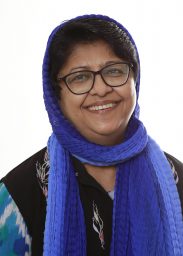
Fasiuddin Khan Research Foundation (FKRF), Dhaka
Bangladesh
Scaling up of a Community-Based Palliative Care Program for Rohingya Refugees
Background
During a humanitarian crisis, most people with pre-existing chronic or life-threatening illnesses are systematically de-prioritized by the health response. With the rise in non- communicable disease (NCD), an epidemiological transition is underway: globally, people are living longer with incurable disease. There is a great need to expand health care delivery for all stages of chronic illness, including palliative care (PC). PC offers pain and symptom relief, as well as psychosocial support, for all stages of incurable disease.
Aim
Scaling up of a PC pilot project in Rohingya Refugee Camps, Cox’s Bazar to support people with life- limiting illnesses.
Methods / process
Study Design: Mixed methods.
Patients Selection Criteria: 1. Diagnosed with any incurable disease; 2. Any age; 3. Living in Rohingya camps or local host area; 4. Registered with the PC service.
Data collection: Patients will complete baseline questionnaires at enrollment and at 3, 6 and 10 months from baseline using African Palliative Outcome Scale, Hospital
Anxiety and Depression Scale, Washington Group Questions.
Analytic plan: The primary outcome will be the change in the score from baseline to follow up visit at 3, 6 and 10 months. Secondary outcomes include change in HADS and ESAS-R score from baseline to follow up. Statistical analyses will be performed using SPSS software.
Intended outputs / impact
Outputs: Increased access to quality PC services, Increased knowledge, skills and awareness of PC among clinicians in Cox’s Bazar, Increased awareness about scope and benefits of PC and stronger integration of PC between community and district healthcare providers.
Impact: Improved access to quality essential PC services (contributing to SDG 3, target 3.8) in Rohingya camps and Cox’s Bazar. In addition to formally bringing PC into the practice of medicine in CXB, this project will also provide novel data on the patient reported benefits of PC delivery in a humanitarian context.
